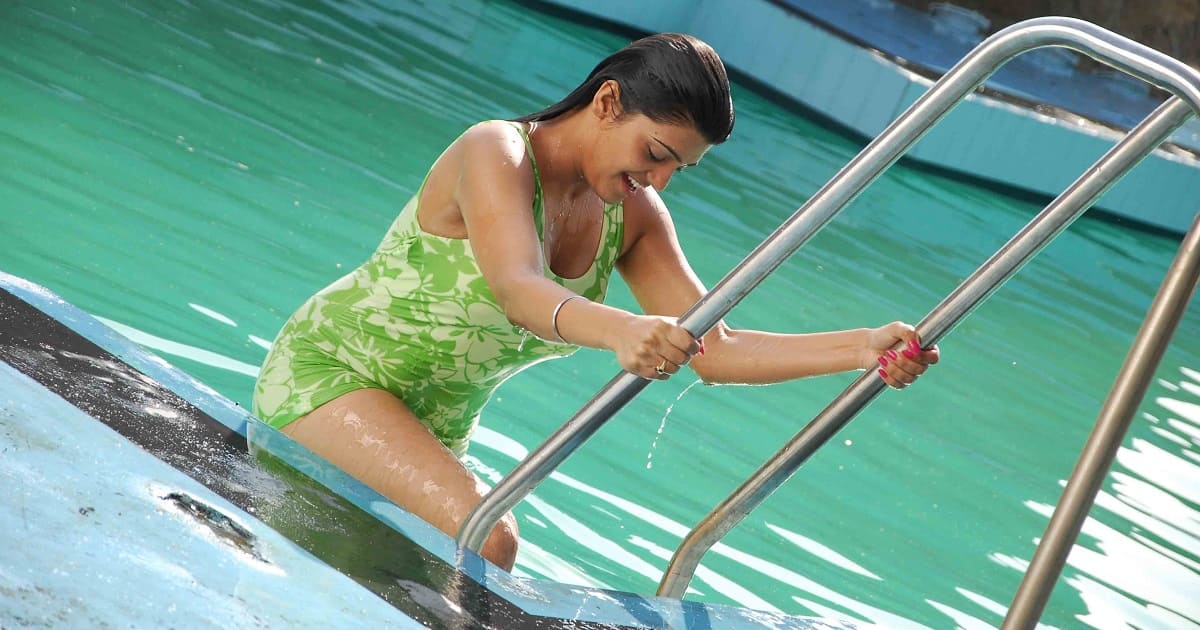
Having a pool in your home is a luxury. These are artificial bodies of water created for swimming and other underwater leisure activities. It occurs in many ways: indoors and outdoors, underground and above ground, and in natural pools. When we hear about swimming, we often think of it as recreation. But swimming is not only an exciting experience, it is also a gateway to amazing physical and mental benefits.
Swimming is a low-impact aerobic exercise that strengthens the entire body and uses different muscle groups. It’s suitable for people of all fitness levels and ages because it’s less stressful on your joints than high-impact exercises. Swimming frequently improves muscle strength, flexibility, and cardiovascular endurance.
Moreover, swimming pools offer a flexible and engaging pastime for people with different interests. We cater for a wide range of hobbies and talents, such as swimming, water polo, diving, or just playing in the water. So having a pool at home is nothing short of a blessing.
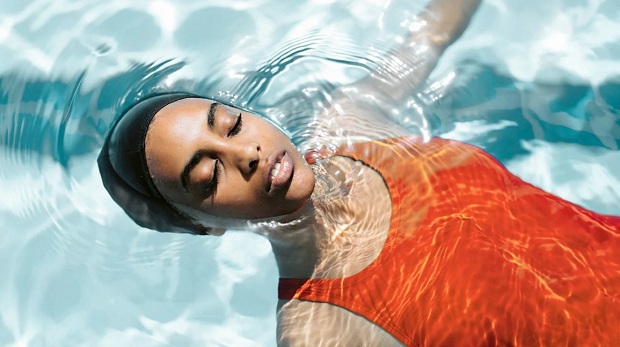
but please wait a moment! These underwater pleasures are not untouched by regulation.
Swimming pools often impose certain rules. These include recommendations for suitable swimwear to ensure a safe and enjoyable experience. One of the key regulations aimed at improving the swimming experience is the ban on wearing cotton clothing in pools.
So let’s explore the reasons behind this poolside regulation.
The reason behind the ban on cotton clothing in pools
Swimming pools often prohibit the use of cotton clothing for reasons of cleanliness and safety. The type of swimwear you wear is very important in maintaining a clean and hygienic swimming environment. Here’s why.
- Bacterial infection: Cotton clothing is prone to bacteria, detergents, and germs, which can spill into the pool if soaked. These toxins put swimmers at risk of disease.
- High absorption rate: Cotton has a high water absorption rate, so it absorbs water well. So consider how uncomfortable it is to swim in clothing that quickly becomes heavy and sticks to your body.
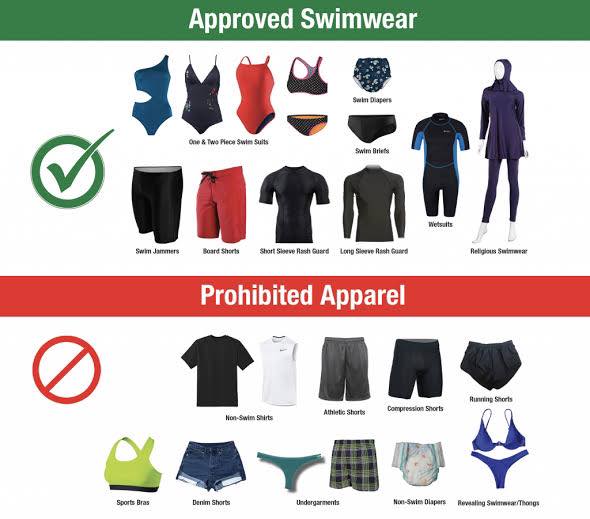
Additionally, the weight of soaking clothing can limit your freedom of movement in the water and make swimming less enjoyable. In fact, wearing cotton while swimming increases the chances of drowning, especially for those learning to swim. Additionally, cotton clothing is highly absorbent and can absorb chemicals that are already soaked in water. It can damage your health.
- Poor chemical balance: Cotton clothing can adversely affect water chemistry and purity. Their fibers have the ability to cloud water, detracting from its aesthetic value and possibly disrupting chemical equilibrium.
Apart from cotton clothing, t-shirts are also generally prohibited in pools as they are excessively submerged and restrict movement. On the other hand, special swim leggings can be worn in the pool, but normal leggings can make swimming difficult.
What should I wear when going to the pool?
When going to swimming pools, it is important to wear proper clothing that promotes comfort, safety and hygiene. Swimsuits are the most typical and commonly recognized option for pool attire. It’s made specifically for use in water, giving you the flexibility and support you need for swimming and other water-related sports.
Thankfully, there are plenty of swimwear options to suit different tastes and age groups. Swimsuits are mainly divided into men’s and women’s. Women prefer to wear bikinis, tankinis, one-pieces, and skirted swimwear, while men prefer to wear trunks, swim briefs, swimming trunks, and one-pieces.
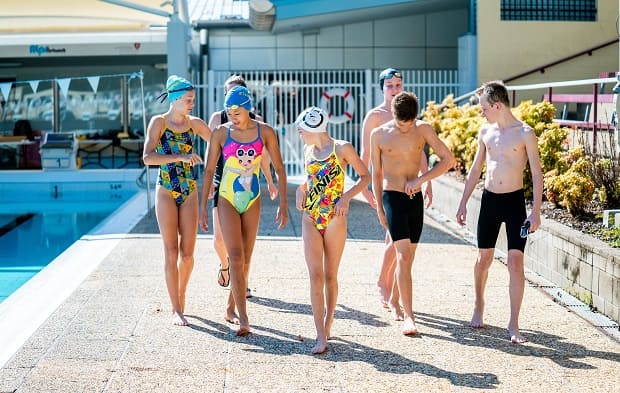
However, when choosing swimwear, it’s important to choose the right fabric that balances durability, stretch, comfort, and resistance to chlorine and UV rays. The best fabric options commonly used in swimwear include nylon, polyester, spandex, lycra, elastane, and PBT (polybutylene terephthalate).
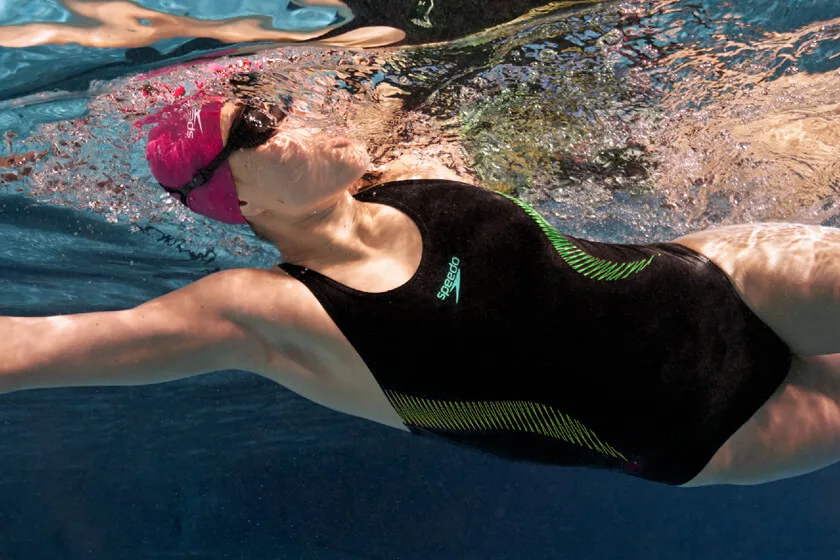
Restricting cotton clothing in swimming pools may cause some annoyances, but it has many practical benefits. Pools promote a safer, cleaner and more enjoyable environment by maintaining cleanliness, preventing water pollution, ensuring swimmer safety and encouraging swimwear hygiene. Respecting these rules improves overall swimming while maintaining water quality and reducing health hazards.
Also read: Ever wondered how Wi-Fi works on an airplane? Here’s the answer